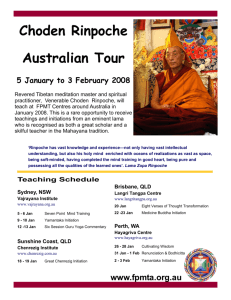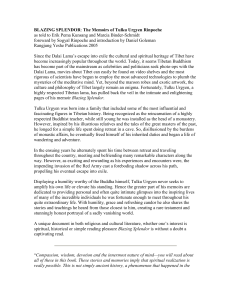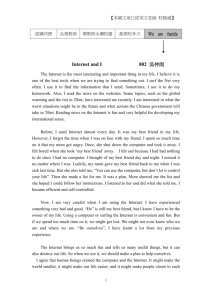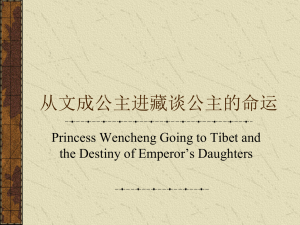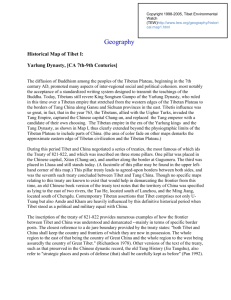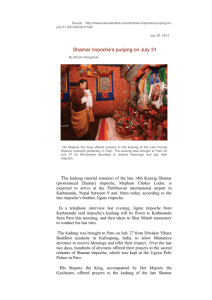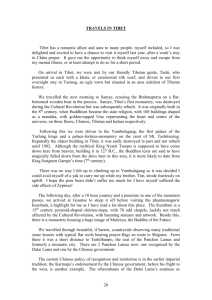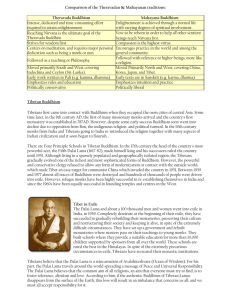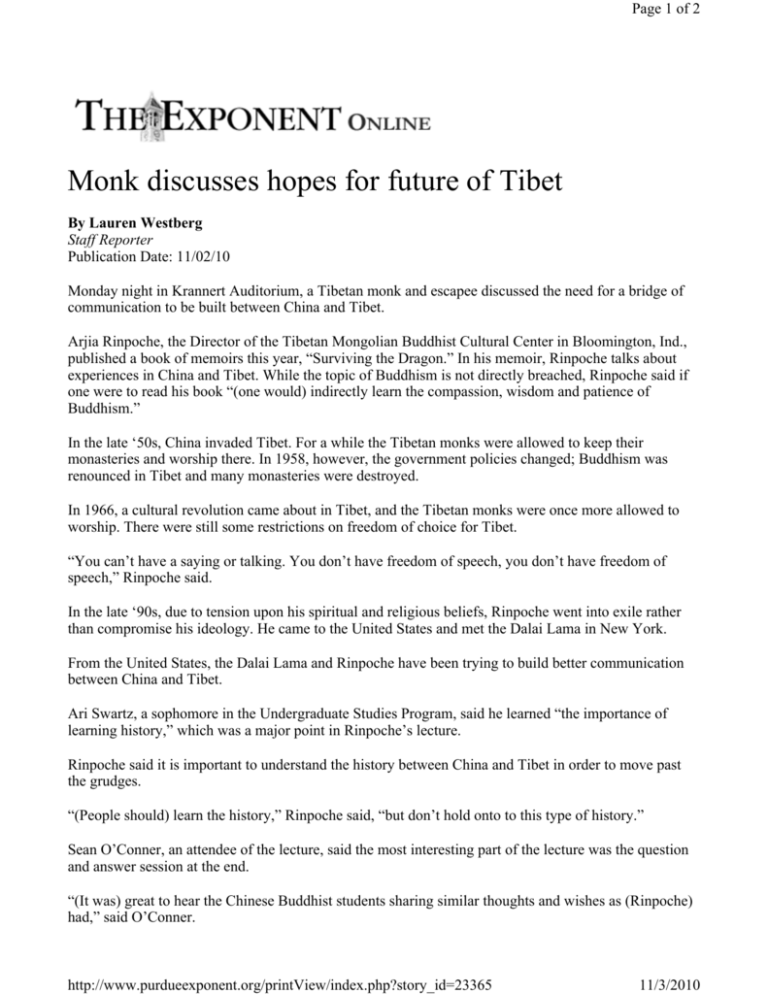
Page 1 of 2
Monk discusses hopes for future of Tibet
By Lauren Westberg
Staff Reporter
Publication Date: 11/02/10
Monday night in Krannert Auditorium, a Tibetan monk and escapee discussed the need for a bridge of
communication to be built between China and Tibet.
Arjia Rinpoche, the Director of the Tibetan Mongolian Buddhist Cultural Center in Bloomington, Ind.,
published a book of memoirs this year, “Surviving the Dragon.” In his memoir, Rinpoche talks about
experiences in China and Tibet. While the topic of Buddhism is not directly breached, Rinpoche said if
one were to read his book “(one would) indirectly learn the compassion, wisdom and patience of
Buddhism.”
In the late ‘50s, China invaded Tibet. For a while the Tibetan monks were allowed to keep their
monasteries and worship there. In 1958, however, the government policies changed; Buddhism was
renounced in Tibet and many monasteries were destroyed.
In 1966, a cultural revolution came about in Tibet, and the Tibetan monks were once more allowed to
worship. There were still some restrictions on freedom of choice for Tibet.
“You can’t have a saying or talking. You don’t have freedom of speech, you don’t have freedom of
speech,” Rinpoche said.
In the late ‘90s, due to tension upon his spiritual and religious beliefs, Rinpoche went into exile rather
than compromise his ideology. He came to the United States and met the Dalai Lama in New York.
From the United States, the Dalai Lama and Rinpoche have been trying to build better communication
between China and Tibet.
Ari Swartz, a sophomore in the Undergraduate Studies Program, said he learned “the importance of
learning history,” which was a major point in Rinpoche’s lecture.
Rinpoche said it is important to understand the history between China and Tibet in order to move past
the grudges.
“(People should) learn the history,” Rinpoche said, “but don’t hold onto to this type of history.”
Sean O’Conner, an attendee of the lecture, said the most interesting part of the lecture was the question
and answer session at the end.
“(It was) great to hear the Chinese Buddhist students sharing similar thoughts and wishes as (Rinpoche)
had,” said O’Conner.
http://www.purdueexponent.org/printView/index.php?story_id=23365
11/3/2010
Page 2 of 2
Rinpoche left his audience with his thoughts and hopes on the future relationship between China and
Tibet.
“My saying is, no matter if we’re Chinese people or American people or Tibetan people, we should
learn more history,” Rinpoche said. “We should learn more the reality. So that when we learn the reality,
then we can build that bridge.”
The Exponent
P.O. Box 2506
West Lafayette, IN, 47906
(765) 743-1111
online@purdueexponent.org
© 2010 The Purdue Exponent. All Rights Reserved.
http://www.purdueexponent.org/printView/index.php?story_id=23365
11/3/2010

